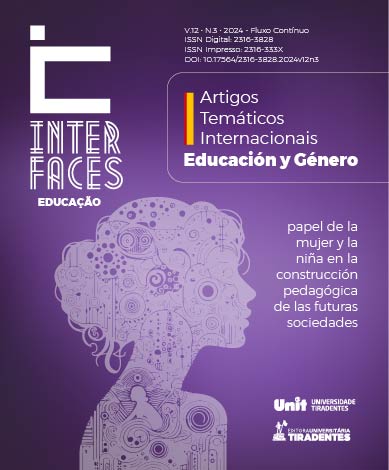THE PERCEPTION OF MENTORS AND MENTEES ABOUT THE MENTORING PROJECT
A RESEARCH REPORT
DOI:
https://doi.org/10.17564/2316-3828.2025v13n1p187-205Keywords:
evasão escolar, instituições de Ensino Superior, MentoriaPublished
Downloads
Downloads
Issue
Section
License
Copyright (c) 2025 Interfaces Científicas - Educação

This work is licensed under a Creative Commons Attribution-NonCommercial 4.0 International License.
A Revista oferece acesso livre e imediato ao seu conteúdo, seguindo o princípio de que disponibilizar gratuitamente o conhecimento científico contribui para a democratização do saber. Assume-se que, ao submeter um artigo, o(a) autor(a) se reconhece como detentor(a) do direito autoral sobre ele e autoriza seu livre uso pelos leitores, podendo ser, além de lido, baixado, copiado, distribuído e impresso.Abstract
Academic evasion is conceptualized as abandoning the course before its conclusion. This is not a recent problem, happening since the first school appeared in Brazil in 1550. The motivations for dropping out of the course are divided into internal and external factors. In response, several educational institutions have set up mentoring projects, which aim to reduce dropout rates and monitoring of freshmen in their adaptation. Considering that this evasive process is deleterious to the individual and the institution, Grupo Tiradentes started the project in 2016, at its headquarters in Aracaju, and, in January 2017, implemented it at UNIT-AL. In view of this, the effectiveness of the Mentorship Project at UNIT-AL and its relevance in the academic and personal life of mentors and mentees was evaluated, since these are the protagonists of this action, as well as the reasons for evasion and permanence in the institution. For its realization, the project was sent and approved by the Research Ethics Committee of the institution under registration 40486720.0.0000.5641. Data were collected through online questionnaires and semi-structured interviews by videoconference, and the analysis of the results obtained used descriptive and transversal methods through an analytical and mixed study. The results showed that mentors join the project through external motivation, however, during participation, there was a transition to intrinsic motivation. In addition, important benefits were perceived from the project for the university, mentors and mentees in relation to the economic, professional and/or emotional spheres.


















